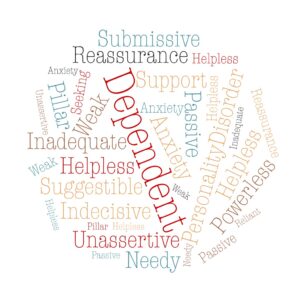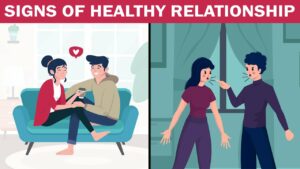Contents
- 1 What Is Relationship Role?
- 2 Relationship Roles
- 3 Types Of Role
- 4 Finding The Right Balance
- 5 How To Be Effective at Relationship Roles?
- 6 How To Meet Expectations People Have For Relationships?
- 7 Ending A Relationship With Someone Who Is Not Meeting Your Needs?
- 8 How To Know If Your Relationship Is Healthy Or Unhealthy?
- 9 Conclusion
What Is Relationship Role?
 There are many relationship role that a person can play. Not only are there the “traditional” roles, but there are also others such as being a confidant, a secret keeper, etc. And even though everyone has different expectations for what they want from a relationship. There is always something to learn from all of them.
There are many relationship role that a person can play. Not only are there the “traditional” roles, but there are also others such as being a confidant, a secret keeper, etc. And even though everyone has different expectations for what they want from a relationship. There is always something to learn from all of them.
Not everybody has the same expectations for what they want from a relationship, but there are always things to learn from them. Whether or not you are in a “traditional” role, there is sometimes something you can do differently to make your partner happy. It might take some trial-and-error, but it’s worth it.
Relationship Roles
People have many different expectations for relationships. And while you might not be in one of these “traditional” roles, there are sometimes small things that can make your partner happy.
You should always put your best effort into whatever role you are playing. If it isn’t working out for both of you, be willing to try something different.
Some possible relationship roles include a confidant, a secret keeper, a partner in crime, etc. There are various ways to play these roles and each person has different expectations for what they want from the other person. People have many different expectations for relationships, and these roles can help with meeting those expectations.
Confidant– someone you can tell anything to or ask for advice
Secret Keeper– the person who keeps your secrets
Partner in Crime– your partner in adventure (e.g., sneaking out of the house, etc.)
Types Of Role
Not every relationship follows the same path. Some people prefer casual relationships while others want long-term ones. There is no “right” path that your relationship must take, but there are certain things you can look out for in order to figure out if it’s worth staying in or if it’s time to move on. These are the common relationship roles-
Childish or submissive role

There are different roles that you play in your relationship. One of these is the “childish” role. If you are playing this role, you might need to ask for help with things or give up some things so your partner doesn’t get mad at you. There are also different ways to play the “submissive” role.
If you are playing this kind of role, you might find that there are some things about your partner that get on your nerves. You need to be honest with them and tell them what’s bothering you so they don’t think it’s okay. If they genuinely care about you, they should be willing to listen.
You can try your best to keep your relationship healthy, but sometimes you just need to look at the facts and decide if it’s worth staying in or not. There are certain signs that you should watch out for when trying to figure out whether or not things are heading in the right direction.
The parental or dominant Role
The parental or dominant role is a type of role that often appears in long-term relationships. This is usually the role where one person takes care of the other, provides for them, and makes decisions for them. This kind of role can be helpful in a relationship, but it can also cause some problems.
If you are in this role, it’s important to remember that your partner is their own person and should be treated as such. You should also be willing to listen to their opinion and take it into account. It’s also important to let them know what is going on in your life.
If you are not happy with this role, you might want to consider talking to your partner about it. They might not even realize they are doing it and would be willing to change their behavior.
Why Is This Role So Common?
This kind of relationship can seem very common in modern society, but there are various reasons for why things may have changed over time: – Many people live far away from home and family – People might not want to take care of their parents in their old age – Some people might not want to get married or have children
While this shift in roles may seem positive, there are some negative connotations that come along with it. If you want to keep your relationship healthy, make sure both of you feel comfortable with the role you take on.
Passive and dependent vs. driven and compulsive Role

A person can also be passive or dependent meaning they choose to focus on others rather than themselves. They are always looking for someone else to make decisions for them, and they often fear making mistakes. However, this can make their partner feel like they don’t trust them or that they are not serious about the relationship. The other type of role is driven and compulsive. This type of role is much more experienced than the passive one.
A driven person will constantly want to do things with their partner, but it might mean that the other person never gets a say in anything. They may also try to change what’s important to their partner so that they can go along with it.
Defensive and angry vs. rigid and righteous
There are two types of roles that people can take in a relationship: defensive and angry, or rigid and righteous. The defensive and angry role is often played by people who feel like they are not being heard. They might get mad at their partner for no reason, or they might start fights over things that don’t matter. This type of role can be very destructive to a relationship.
The rigid and righteous role is often played by people who want everything to be perfect. They often have high standards for themselves and for their partner. This type of role can be very demanding and it can be hard to please someone who is always looking for mistakes.
Irrational vs. overly rational

There are two types of people: irrational and overly rational. The irrational person will often do things without thinking and impulsively. They might not always try to fix their own problems, and they would rather just talk about other people’s problems. An overly rational person, on the other hand, is more likely to try to change their partner or avoid them altogether. They might also want to solve all of the problems that happen in the relationship.
Both of these types of roles can be problematic for a relationship. If you are an irrational person, your partner might try to change you, and if you are an overly rational person, you might make your partner feel like they don’t matter.
If none of these roles seem to fit either one of you, there is another type of role that you can take: the “I” role. An “I” person is someone who stands up for themselves and doesn’t let other people change them. They also communicate their feelings and desires if they want something to happen. It’s important for both partners to play this role in a relationship because it shows that each person cares about what is important to them.
Finding The Right Balance
There is no perfect role in a relationship and it’s important for both people to take on different roles. You should be able to rely on your partner, but you should also learn how to stand up for yourself and talk about your problems. It’s probably best if both people can accurately predict how their partner will react in different situations.
The first step to figuring out the right role for you is to identify what type of relationship style you have. Make sure that your partner takes on a different role, and be honest with yourself about what you need from them. If you want help finding the right balance, consider talking to a therapist or coach. They can help figure out what role you should take on in your next relationship.
How To Be Effective at Relationship Roles?

All relationships are different and there’s no way to say exactly how someone should play these roles. But there are ways to be more effective at them and make your partner happy.
- Have an open mind
- Don’t take things personally
- Be honest with yourself and with your partner, let them know if something isn’t working for you
- Put your best effort into these roles
- Be willing to try new things or have different expectations
- Give your partner some space if need be
How To Meet Expectations People Have For Relationships?
Whether you are in a “traditional” relationship role or not, there is always something that can help you meet the expectations of your partner. People have many different expectations for relationships, and they may be hard to meet, but with some effort from both parties, they can be happy!
1) Be willing to try new things or change roles if need be
2) Talk about your expectations and ask what your partners are
3) Be honest with your partner and let them know what you want and need
4) Be willing to compromise and meet halfway on some things if need be
5) Don’t take it personally when your partner can’t meet your expectations
6) Give space if they need it
7) As hard as it may be, don’t hold grudges against your partner if they don’t meet your needs
8) Be honest about what you can or cannot give to the relationship
9) Don’t blame yourself if things aren’t working out
10) Let go of fears and insecurities that might be holding you back
Ending A Relationship With Someone Who Is Not Meeting Your Needs?

It can be difficult to end a relationship with someone who is not meeting your needs but there are ways to do it without hurting them. People have many different expectations for relationships, and if they are not being met, it is often hard on both of you. But sometimes things just aren’t working out, no matter how hard you try.
1) Be honest with yourself
2) Be honest with your partner
3) Don’t make excuses for their behavior
4) Let them down easy but still let them know there is a problem in the relationship
5) Talk about why you are ending it and how they can fix it, if possible
6) Make sure you don’t leave on bad terms by talking about the good times you had together
7) Be prepared to take responsibility for your half of the relationship
8) Don’t expect more than what you are willing or able to give them at that time. You can’t help someone who doesn’t want to help themselves.
9) Don’t stay in a relationship you know will only lead to more bad times that can’t be fixed
10) If they are being abusive, have no regard for your feelings, or are just generally unhealthy for you, don’t feel guilty about leaving them. You deserve better.
How To Know If Your Relationship Is Healthy Or Unhealthy?

Healthy relationships are satisfying. They make you feel good about yourself and they’re not too difficult to maintain. They’re not perfect, but they have a good balance of work and fun. Typically, you have the feeling that your partner wants to be with you and can tolerate being with you. This might not be a big deal for someone who is a very independent person, but for others, this might be a necessity.
An unhealthy relationship can sometimes feel wrong from the get-go. When someone is abusive or makes you feel bad about yourself, it may seem like there’s no way out of this situation. It’s never too late to leave an unhealthy relationship–you just have to find the courage to do it. If everyone seems to think you’re crazy for wanting to leave, try talking with a family member or friend. Sometimes all it takes is one little push to get us moving in the right direction.
- Do they make me feel good about myself?
- Are they too bossy or demanding?
- Are we spending time together?
- Do they treat me with respect?
- Do we have a balance of work and fun?
- Their actions match their words. Do they say things that make me happy, but then do something that makes me sad?
- Is this person good for my friends or family members to be around?
- Do they make me feel guilty when I need space?
- Am I afraid that my family or friends will be mad at me if I leave this person? Are my reasons for leaving good enough for them to understand why I am ending the relationship?
- Am I losing touch with my values, morals, and goals in life because this person is too demanding or controlling?
Sure, love can be tough. It’s easy to get caught up in the excitement of finding someone you really like. But it’s essential not to lose sight of what you want for yourself long-term. This includes finding someone who respects your values, treats you well.
Conclusion
Love is never easy, but it’s worth fighting to keep things healthy. When you find yourself in an unhealthy relationship that makes you feel bad about yourself or your friends and family members are telling you that the person has changed for the worse, take a step back and think about what matters most to you. Is this someone who respects your values? Treats you well? Keeps their promises? If not, don’t be afraid to walk away–you deserve better.
For more information, please contact MantraCare. Relationships are an essential part of human life. It is the connection between people, and it helps us to form social bonds, understand and empathize with others. If you have any queries regarding Online Relationship Counseling experienced therapists at MantraCare can help: Book a trial therapy session


